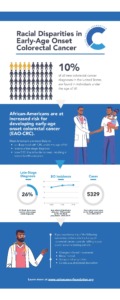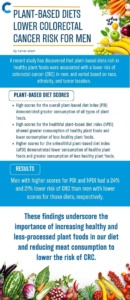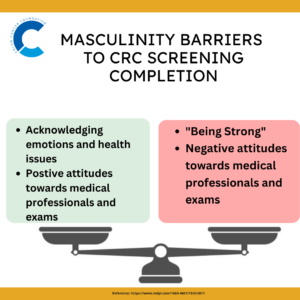By Parker Lynch
In a recent study conducted in Canada, 5,026 patients with colorectal cancer (CRC, all younger than 50) were evaluated between 2007 and 2018. This study evaluated the time between a patient’s first presentation with CRC and their treatment initiation. The overall objective of this study was to determine if a longer time from presentation to treatment start would result in worse survival rates for CRC patients, particularly those under 50.
Relation Between Treatment Start and Disease Outcome
The median age of the participants was 44 years, with about an equal number of males and females:
- 25.2% overall had metastatic disease
- 31.2% had rectal cancer
The lower-urgency subset consisted of 2,548 patients. Patients with metastatic CRC had shorter median (IQR) overall intervals (83 days) compared with those with less advanced disease. Five-year overall survival was 69.8%. Overall intervals longer than 18 weeks were not associated with significantly worse overall survival (OS) or cancer specific survival (CSS) compared with those waiting 12 to 18 weeks. Additional analysis by the researcher where patients were stratified by stage of disease did not show significantly worse OS or CSS with increasing overall interval lengths.
One would expect the findings to support that a later treatment start would result in worse outcomes for the patient. In other words, starting treatment as soon as possible would yield the best prognosis for patients. However, this study found something quite different: time from presentation to treatment was not associated with advanced disease or poor survival. This finding insinuates that a patient has a little bit of “leeway” in terms of the time it takes for them to begin their actual treatment, without having to worry that this delay will correspond to decreased survival.
Another Study With a Different Perspective
In another study, the administrative time of adjuvant chemotherapy following a curative surgical procedure for stage 3 CRC was evaluated. Specifically, researchers wanted to determine if there was a so-called “sweet spot” for when a patient should begin chemotherapy to maximize their chances of survival.
In this study, 159 patients with stage III CRC, who had undergone a curative resection, were enrolled. Patients were categorized into 3 groups representing different timings to initiate chemotherapy treatments:
- less than 2 weeks (group 1)
- 3 to 4 weeks (group 2)
- more than 5 weeks (group 3)
The OS and relapse-free survival rate (RFS) were analyzed to evaluate the effectiveness of adjuvant chemotherapy. The 5-year OS was:
- 73.7% in group 1
- 67.0% in group 2
- 55.2% in group 3
The 5-year RFS was:
- 48.8% in group 1
- 64.7% in group 2
- 57.1% in group 3
When specifically considering CRC patients who have undergone resection procedures, it was loosely determined that chemotherapy should be administered 6-8 weeks after one undergoes an operation. However, the administration prior to the 6-week mark didn’t result in a statistical difference in outcomes.
This, however, should not encourage patients to “wait out” their cancer; rather, that time should still be spent on interactions with providers to come up with a treatment plan. CRC, on average, takes around two years before it metastasizes to other organs such as the lungs, liver, lymph nodes, peritoneum, etc. Though this sounds like a lot of time, it is always best to be aware of one’s condition as soon as possible.
The Dangers of Misdiagnosis
When CRC is discovered at an advanced stage, it can be one of the deadliest and most difficult cancers to tackle. This is why misdiagnosis is such a prominent fear and active issue within the CRC community, particularly among younger CRC patients, who often struggle with getting the right diagnosis in the first place.
When a younger person experiences CRC symptoms, it is often easy for them to be excused as hemorrhoids, irritable bowel syndrome, inflammatory bowel disease, or other gastrointestinal conditions. When properly diagnosed after the initial misdiagnosis, patients would have typically already progressed to a more intense and worrisome stage of CRC, therefore making their treatment plans and overall survival rates more complicated.
Every CRC patient is different–they may vary in age, sex, predisposing health, stages of CRC, etc. Therefore, it is impossible for researchers to determine the perfect time in which every single patient should start treatment while keeping their survival rates in mind. However, the dangers of waiting too long are known. Though beginning chemotherapy treatments early (less than six weeks after resection procedures) don’t typically have a significant impact on one’s survival rate, significant delays in initiating treatment may result in negative outcomes.
Parker Lynch is a Colorectal Cancer Prevention Intern with the Colon Cancer Foundation.









 The multiethnic cohort study included 79,952 men and 93,475 women. Three plant-based diet scores were investigated to determine the incidence of invasive CRC:
The multiethnic cohort study included 79,952 men and 93,475 women. Three plant-based diet scores were investigated to determine the incidence of invasive CRC:
